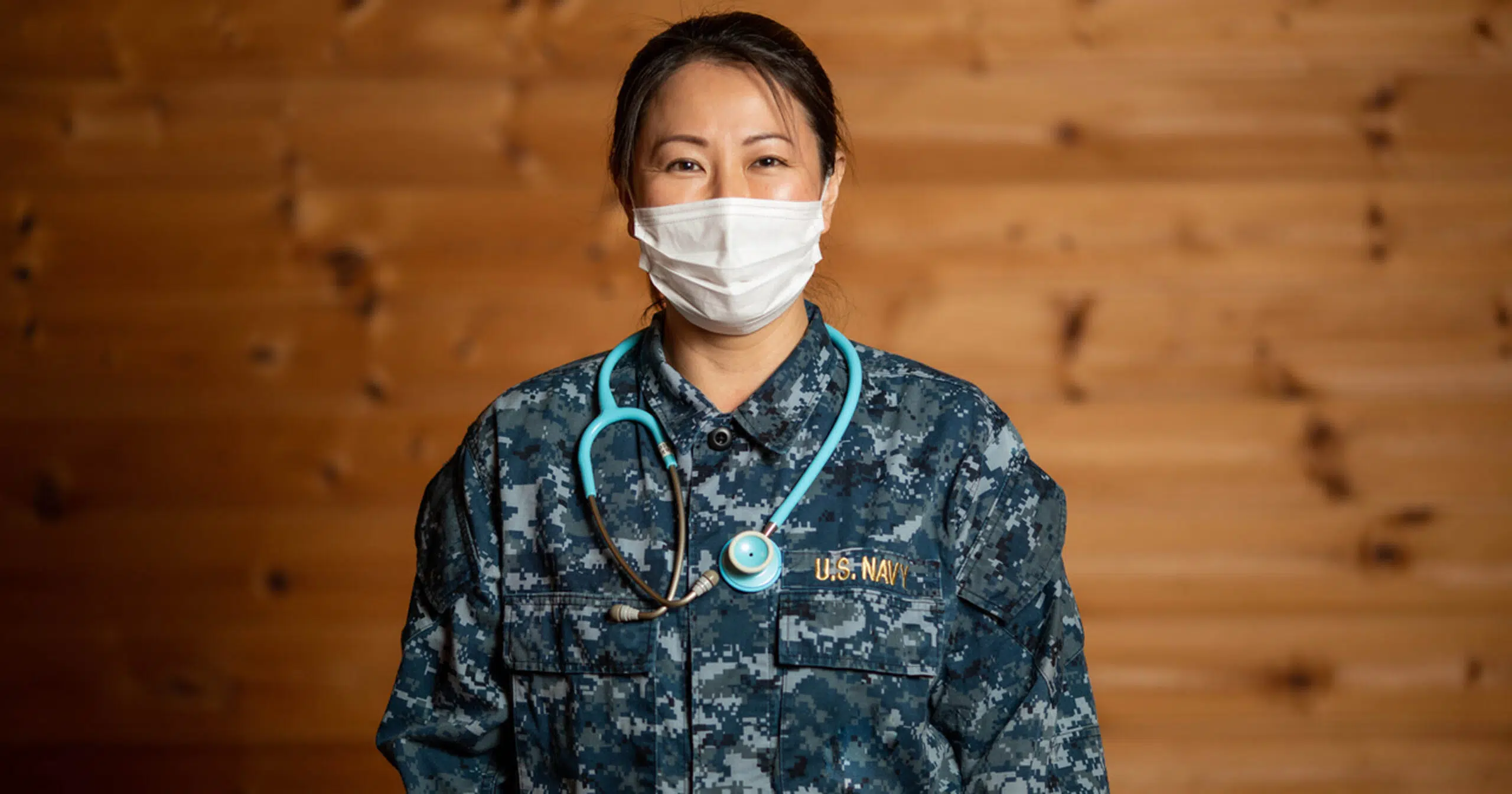There are lots of great reasons to pursue a career in nursing, including numerous pathways for career advancement, phenomenal job security and the ability to help others. However, paying for nursing school to get licensed and other education to get certified or move up the ladder might seem daunting. Whether you’re a current high school student, a potential career changer or someone looking for a new degree to advance within nursing, our comprehensive guide on getting the financial aid you need to pursue a nursing career could offer the answers you seek.
Careers in Nursing and Types of Nursing Schools

Choosing a nursing school depends on the nursing level you aim to achieve. Education options include:
- Certificate programs for certified nursing assistants (CNAs) and licensed practical nurses (LPNs) or licensed vocational nurses (LVNs) who work under RNs and doctors.
- Degree programs like an Associate Degree in Nursing (ADN) or Bachelor of Science in Nursing (BSN) are for those aiming to work as registered nurses (RNs), with more responsibilities and higher pay. Accelerated programs can help existing ADN holders or those with another bachelor’s degree pursue a BSN.
- Advanced degrees such as a Master of Science in Nursing (MSN) for aspiring Advanced Practitioner Registered Nurses (APRNs) and a Doctor of Nursing Practice (DNP) or PhD in Nursing for roles in research, management or academia provide the education needed to climb the nursing career ladder.
Program tuitions differ considerably and can run into the tens of thousands of dollars per year. Degree programs generally cost more than certificate programs, with four-year degree programs being pricier than two-year ones. Public institutions usually cost less than private, but financial aid is available for both. Budgeting for tuition, fees, books, uniforms and possibly room and board is essential. Financial aid can help cover these expenses and other costs like childcare for parents.
Financial Aid for Nursing Students: Grants vs. Loans and Public vs. Private

When seeking financial aid for nursing education, it’s important to know that loans, with a few exceptions, need to be repaid. These loans can be obtained publicly from the federal government, sometimes from your state, and privately from institutional lenders.
Alternatively, you can be awarded various academic scholarships or need-based grants that you don’t have to pay back. Your school, the government and various charitable and private institutions may award grants.
For most types of financial aid, you start by filling out the Free Application for Federal Student Aid (FAFSA) form. Both public and private aid sources use this form to determine your eligibility and level of need. Your school also uses it to determine what type of need-based aid it may want to offer you through grants and scholarships.
Based on your needs, some schools may also offer you a work-study option. Work-study involves an on-campus or off-campus job that pays a wage you can use to help cover your school or living expenses.
Federal Grants
Various types of federal grants can supplement grants provided directly by your nursing school. An example of a federal grant is the Pell Grant, offered to those pursuing an undergraduate degree or certain advanced degrees. It’s based on financial need, determined via the FAFSA, and doesn’t need to be repaid. As of the 2024-2025 school year, the maximum Pell Grant award is $7,395.
Federal Loans
The federal government offers loans for students in higher education. Need-based direct subsidized loans with a cap of $23,000 are for undergraduate students with financial need. The government pays the interest while you’re in school. After you graduate and become a nurse, you will owe the loan balance and must make interest payments on the balance until it reaches zero.
Direct unsubsidized loans are available to undergraduate and graduate students regardless of financial need. Interest accrues while you’re in nursing school, so the balance grows until you start making payments. The total combined federal loan limit, both subsidized and unsubsidized, is $57,000 for the 2024-2025 school year, with higher amounts for graduate students.
State Aid Programs
Individual states may also have financial aid programs for their residents. For instance, California has Cal Grants while Texas has Toward EXcellence, Access, and Success (TEXAS) Grants. These programs, along with those in many other states, offer need-based grants to their state residents for higher education such as nursing school. They may require you to attend an in-state institution.
Private Loans
After using any grants and the maximum available federal or state loans, you may still need additional funds to cover all your nursing schooling costs, including your living expenses. At this point, you must turn to private loans from various financial institutions. These loans may have higher interest rates, and there’s generally no form of loan forgiveness for such borrowing.
Private/Institutional Scholarships for Nursing Students
Various business and private foundations offer scholarships for nursing students, generally paid directly to your school, to reduce the balance of your tuition and fees. Organizations offering these scholarships include Johnson & Johnson, The Foundation of the National Student Nurses Association (FNSNA), Tylenol and the American Association of Colleges of Nursing (ACCN), among many others. Some scholarships target particular parts of the student population, such as those offered by the National Black Nurses Association for Black nursing students or the Point Foundation for students in the LGBTQIA+ community.
Aspiring RNs can search online for a wide array of private scholarships, most of which require you to fill out a proprietary application that may require personal statements and letters of recommendation. These awards can be quite competitive, requiring you to put your best foot forward. In general, start your research early and begin assembling the necessary documents you need to apply. Deadlines for scholarships are often in the period between February and May with awards dolled out for the fall semester.
What Is a Student Loan Payment Deferral?
A student loan deferral is a pause in loan payments. During a deferral, you won’t be responsible for making monthly payments. However, the lender may continue adding interest to your total balance owed, which means your overall debt will grow during the deferral period.
Therefore, deferrals are best used only in financial emergencies or when you’re pursuing further education that might elevate your future pay. Lenders may grant deferrals if you’re:
- Being treated for a debilitating illness that prevents you from working
- Facing economic hardship
- Attending graduate school or participating in a fellowship
- Deployed on active-duty military assignment
- Enrolled in a mental health or substance abuse program
- Currently receiving unemployment benefits, such as following a layoff
Tuition Reimbursement from Healthcare Employers

Due to rising education costs, some healthcare employers offer tuition reimbursement, a popular perk among Millennials and Gen Z. Large hospitals and health systems are more likely to provide this benefit, with coverage varying from a small percentage to the full tuition amount.
Eligibility rules differ by employer and may require a minimum number of work hours per week, a specified length of employment and achieving high grades. Tuition reimbursement often has annual limits, but programs may cover other expenses in addition to tuition, like books and fees.
Unlike other types of financial aid for nursing school, tuition reimbursement usually requires upfront payment and application submission after passing the course. Your employers may provide reimbursement via check or direct deposit. Some companies now offer tuition assistance rather than reimbursement, paying tuition upfront directly to the schools.
Types of Student Loan Forgiveness for Nurses
Typically, getting loan forgiveness from private lenders isn’t possible. However, nurses who took out public student loans may qualify for various state loan forgiveness programs or federal student loan forgiveness programs designed for nursing or other healthcare professionals.
Nurse Corps Loan Repayment Program (Nurse Corps LRP)
If you’re willing to work for two years in a Critical Shortage Facility as an RN or APRN or as faculty in an eligible school of nursing, you can apply for the Nurse Corps LRP. The U.S. Department of Health and Human Services pays 60% of outstanding student loan balances once you complete the two-year work service requirement and may pay an additional 25% if you complete an optional third year.
Public Service Loan Forgiveness (PSLF)
The PSLF program has become a popular way for public servants to discharge large amounts of educational debt. The program is open to nurses and other individuals who work for a U.S. federal, state, local or tribal government or a nonprofit organization.
To qualify, you must be employed full-time by a government or nonprofit employer for 10 years and have a public student loan in which you paid the first 10 years of payments (120 payments). Upon approval, the PSLF program pays off your public loan’s outstanding balance on your direct loans issued by the federal government.
Will the Military Pay for My Nursing Education?
Both veterans and current members of the U.S. Armed Forces have additional ways to pay for nursing school. Every branch of the military has a college repayment or reimbursement program. These programs encourage enlistment in active duty or the reserves, including recruits wanting to attend nursing school.
GI Bill
The GI Bill covers the cost of undergraduate and graduate degree programs for qualifying veterans and their immediate family members. Through this program, the Veterans Administration pays for tuition and fees directly to the school and gives money to you for purchasing books. In addition, the military offers a housing allowance to help cover your room and board, rent or mortgage.
Active Duty Health Professions Loan Repayment Program (ADHPLRP)
Through the ADHPLRP, the U.S. Army pays up to $40,000 of your student loan debt each year you serve as an active-duty nurse for up to three years. This option is available to those who have already completed their nurse training and are willing to serve as an active-duty nurse. You must serve in the military for at least two years to qualify, but if you serve the entire three years, the military pays off up to $120,000 in student loans.
After completing your nursing education, let Vivian Health help you find your dream job in nursing. Our jobs marketplace has you covered whether you want to work as a CNA, LVN/LPN, RN or APRN, or in nursing administration and management.










